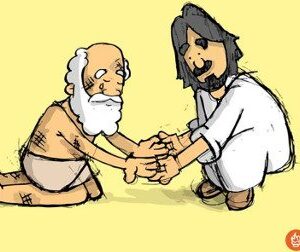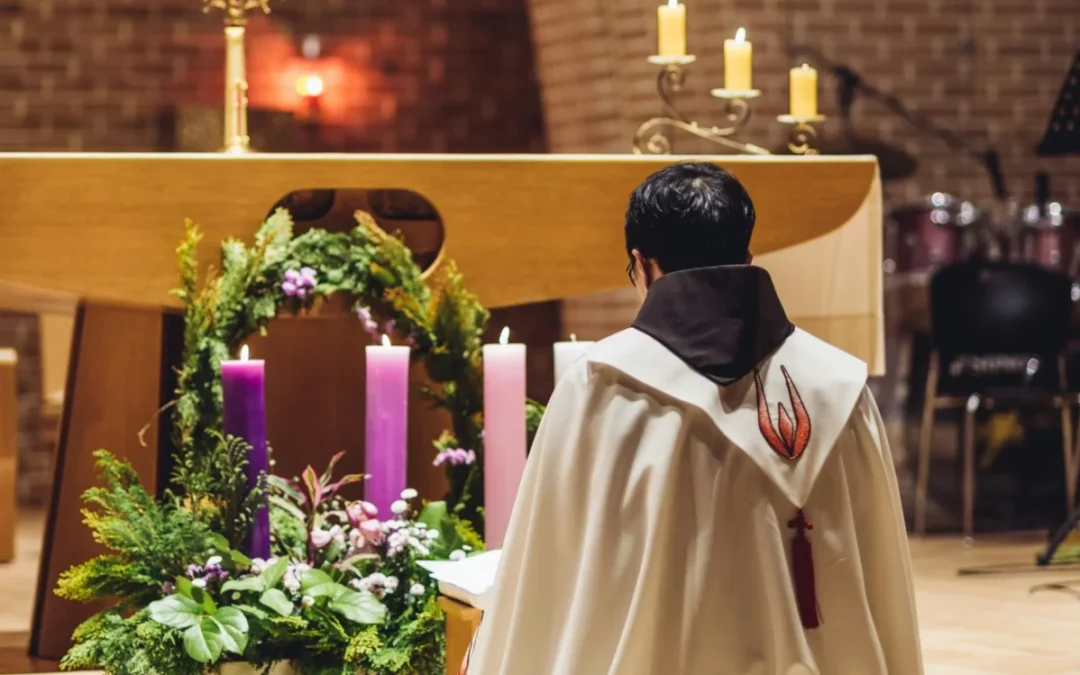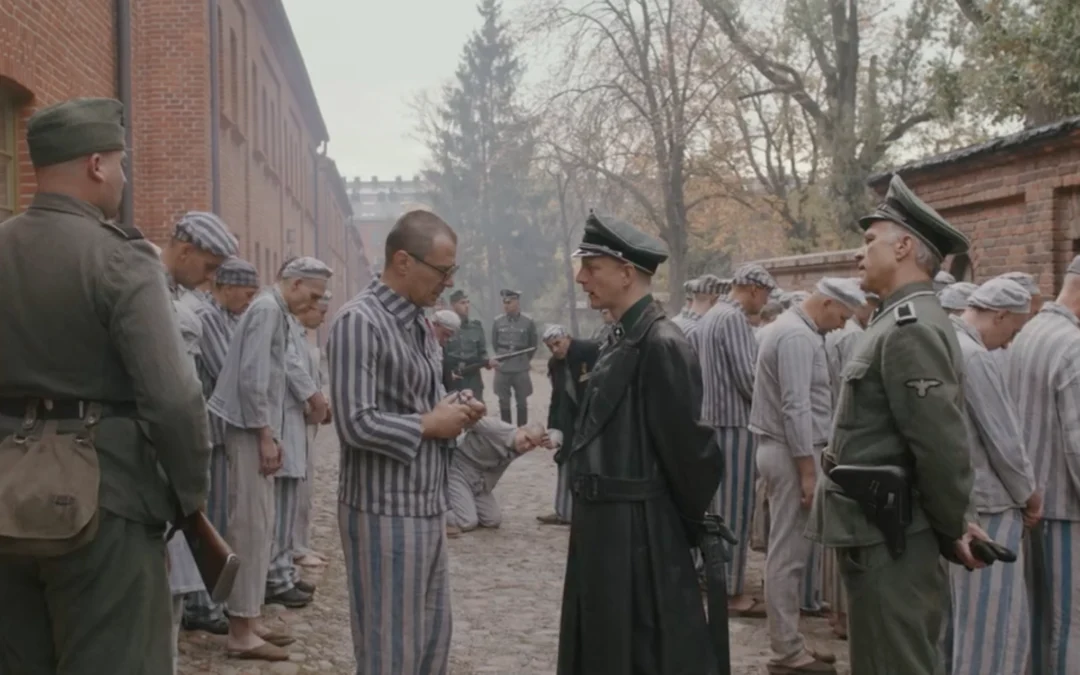Four years ago, my future seemed clear to me. I thought I’d spend my days living in small-town Minnesota and ministering to country parishes as their priest. I love my home state, and I love the people there very much, but God had other plans.
After leaving seminary, I struggled to know what God wanted me to do with the years of formation I had received. In many ways, I had invested everything into seminary, and I came out with a degree that wasn’t very employable, a lifestyle that wasn’t practical, a prayer life that wasn’t maintainable, and on top of all of that, an empty bank account.
Then I met Emma.
She was the woman that I didn’t think actually existed—such a perfect match that I quickly knew she was the future God had in mind for me all along.
Eighteen months later, I found myself in Brisbane, Australia, walking down the aisle of St. Brigid’s Catholic Church in Red Hill, Queensland, with the love of my life.
Since then, everything started to make more sense. The life I had lived up to that point had not been worthless. In fact, those years of formation were exactly what I needed in order to complete God’s mission for me.
Here are four lessons I learned in seminary that are a daily blessing to my marriage.
4 Lessons I Learned In Seminary That Help Me In Marriage
- Pray, Pray, Pray!
In seminary, the prayer regimen is intensive. Besides attending a holy-hour, Mass, and gathering for the Liturgy of the Hours five times every day, we had regular meetings with a spiritual director. This was all in addition to personal devotions, such as the Rosary, Divine Mercy Chaplet, journaling, etc.
Seminarian life is centered around prayer, and the schedule is primarily structured to facilitate the relationship between the seminarian and God.
Unfortunately, this kind of schedule and prayer life is incompatible with most professional careers. And as I transitioned from seminary to secular life, I started to see cracks appear when I let up on my prayer time.
The reality is that prayer accomplishes more than we’ll ever know, and sometimes it is only in those (hopefully rare) occasions when we’re decreasing our prayer commitment (perhaps after a mission trip/year or a time in seminary) and feel ourselves beginning to stumble, that we are able to see how fruitful those hours with the Lord really were and what they bring to our life.
Someone recently told me, “God only answers prayers in the way that you would want them answered if you could see things from God’s perspective.” As difficult as it is to understand how He is working, I trust that God has a plan. My time in seminary taught me that prayer is always being answered—often in ways that have yet to be revealed.
- Virtue, Virtue, Virtue!
My rector in seminary was a former Naval officer who ran the seminary like a ship. It was a squeaky clean (by our standards), well-oiled machine, and he made sure that we knew that the Priesthood was not a walk in the park. He served simultaneously as Rector and Vicar for Clergy, and he knew that good priests are a result of good formation. Similar to those in the military, he formed us by challenging us, pushing us to our limits, and showing us the potential that we had no idea we had. In short, he knew the value of instilling virtue in young men. Truly, he was a virtue fiend.
Unlike the theological virtues (faith, hope, charity) that depend on God’s grace, the cardinal virtues of prudence, justice, fortitude, and temperance are something that a person can practice and develop by their own power. They are rooted more in our human nature and need to be practiced in order to be attained—and our Rector gave us ample opportunities to practice them!
I was often told that I needed to get used to doing the things I didn’t feel like doing when I didn’t feel like doing them and that punctuality is a form of courtesy essential for a respectable priest. I was taught that good communication, humility, emotional intelligence, vulnerability, and lifelong intellectual development are key to being a good leader and pastor.
I was also taught that people’s perceptions of us matter. Accordingly, our rector emphasized good manners—at the table, in conversations, and while speaking publicly. He encouraged us to be respectful, to speak eloquently, and (by his own example) to lead institutions through teamwork and strategic planning. He made sure that our rooms were clean, expected that we fulfill our responsibilities with joy and diligence, no matter what, and that we should look well-groomed and well-dressed every day.
You can imagine that my wife appreciates a few of these lessons. Certainly, I am no perfect husband – if left to my own devices, I probably devolve into a bit of a schmuck – but the importance and practice of virtue that seminary instilled continues to shape the husband I am today. I know my duties, I know my priorities, and I know that discipline is necessary to be able to choose the good life and sustain it—and that this all takes continuous work.
- This life is not the end.
No matter what path you are on, life can easily become directionless, and having a life-mission is essential for everyone. The simple fact that all of us will face death prompts the question, what am I supposed to do with the time that I have?
In seminary, the mission seemed clear— to save a thousand souls. Or more if you could!
In marriage, this sense of mission gains complexity. Now there are two lives intertwined. Besides loving and supporting one’s spouse, there are household concerns, questions surrounding children, and the obligations of one’s job. Every couple follows a unique path; every family look different. There’s not even a clear obligation of prayer in the Sacrament of Matrimony. Compared to the seemingly straight-forward mission and corresponding work of a priest, the aims and responsibilities within marriage can begin to seem vague.
In reality, however, this vagueness is incompatible with Catholicism. Every individual has a mission, and every couple has two! And anyone who doesn’t have heaven as their compass is lost at sea.
This life is not the end—Seminary reminded me of that daily.
Therefore, everything in this life is less important than the eternity to follow. Every couple who knows this in marriage can be set free from the illusion that marriage, alone, can fulfill them, that the love they have with their spouse is the final destination, and that the love in marriage is heaven itself. These are lies that movies and popular culture have promulgated for almost a century. Our fulfillment can only come through our own relationship with Jesus. Some of us are called to marriage in order to more deeply enter into our relationship with Jesus, never to replace Him. I am grateful to have started my marriage deeply aware that our mission for heaven is our priority in life, and our vocation merely serves it.
- God is like a bridegroom.
More than anything, in Seminary I experienced the love of God. During retreats, in prayer, in spiritual direction, within the community and elsewhere, I experienced the presence of the Almighty so deeply that denying the existence and love of God would be like denying the existence of my own two feet. God’s love is truly astounding. And now as a husband—a bridegroom—it’s incredible to see God’s love for humanity present in my love for my wife.
There have been so many occasions when interacting with Emma that I have experienced the love of God in my own love for her. She captivates me and makes me feel like I could do anything for her. When I’m with her, I’m motivated, centered, filled with purpose, and meaning, and I have an endless desire to see her filled with peace and wholeness. In my relationship with my bride, I am reminded of God’s love for His, and I’m filled with awe knowing that His love is even stronger, even more full, even more intense, and rich! Our love as husband and wife may be a mere reflection of God’s, but it is also a profound and deeply personal experience of divine love.
What a gift! The Priesthood or Matrimony. It’s like St. Thérèse says, “all is gift.” And in regard to vocation, it is so true.
Whenever I meet men who have left the seminary, I secretly hope that they return to seminary and get ordained and become great shepherds of the Church. We need them! Whenever I meet women who have left formation to religious life, I feel the same way. I do believe that consecrated life is a higher calling and that anyone who “can receive it ought to” (Mt. 19:12).
Yet being married is where I am called, and I am so grateful for the formation I received in seminary. It blesses me every day, and I hope that it can bless you too.





















